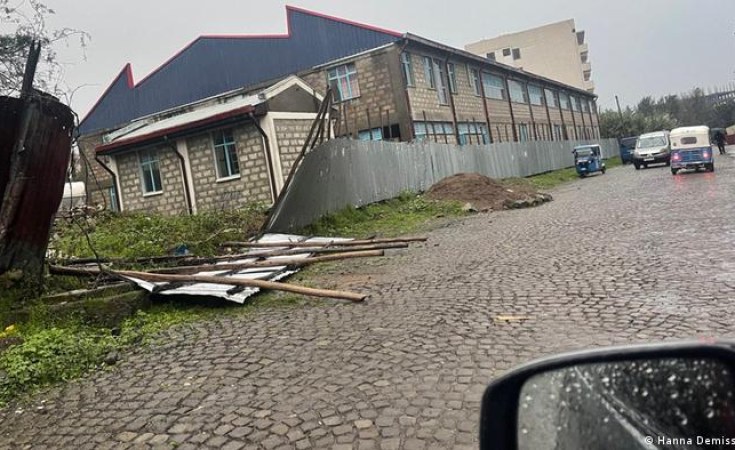One part of Ethiopia is facing the worst drought in four decades and another is hit by flooding. Millions of people are at risk as climate change causes too much and too little rain.
Millions of people require assistance in parts of southern and northern Ethiopia amid the worst drought in 40 years.
The government and the United Nations says more than 10 million people are facing severe hunger in Afar, Oromia, SNNP and South West regions. More than 7.4 million people need food assistance and 4.4 million people need water, according to the UN.
Low rainfall combined with high temperatures has resulted in harvest failures and widespread animal deaths in the regions. People have been unable to cope with such conditions over the past four years.
Thousands displaced
A lack of clean water has increased the risk of disease in the drought affected areas. The Ethiopian Human Rights Commission is calling for more assistance and attention to those who are vulnerable.
According to a report by the commission, thousands of people have been displaced or are living in precarious conditions in regions such as Oromia, and livestock have died by the thousands.
The Ethiopian National Meteorology Agency has meanwhile warned that the heavy rains in some areas could cause widespread disasters including landslides.
Earlier this month, Ethiopia saw a record 100mm of rainfall.
Experts blame climate change
The heavy rains triggered flooding in Ethiopia's capital Addis Ababa, in the Oromia region, the Amhara region and other parts of the country.
Chali Debele, the director of the Meteorological Forecast and Early Warning Directorate at the National Meteorology Agency of Ethiopia, told DW about the cause.
"The country's rainfall events are linked to the effects of climate change elsewhere because they occurred over a few days in the north and south parts of the country, accounting for nearly 40% of the country's annual rainfall," she said.
In recent years, the Horn of Africa has seen torrential raise, torrid dry spells, catastrophic drought, record floods and desert locust invasions.
Chali Debeli believes that mor rain, regardless of the levels, will deplete fertile land further in southern Oromiya and Amhara regions.
Flood-related deaths in Addis
More than 11 people died as a result of he heavy rain in Addis Ababa. Nine people were killed in a flood-related accidents, and police are investigating two more deaths.
Some of the city's residents believe the number of flood victims could be higher. Damage to life and property is said to be severe in some part of the city where roads have had to be closed as fire fighters work to minimize the damage on rainy days.
Eyob W Gabriel, an 18-year-old, died while trying to save others in Addis Ababa. His three children are now homeless.
Solomon, a resident of Addis said rains that are hard to predict create a whilpool of problems. "The city has no proper sewage system and every time when it rains, the road gets blocked, the traffic piles up the elecricity also cuts off," he told DW.
Residents want government intervention
Disaster management authorities in places such as Addis have strongly advised the public to exercise caution. City officials say the government has been working with the mayor's office since last year to lessen the impact of heavy annual rain.
Some residents complain that the government is not doing enough to prevent the problems the rains cause.
"There doesn't seem to be any systematic approach across the whole country, especially the city when it comes to dealing with flood," one Addis resident said. "I urge the authorities to invest and work on the city water system. if not, we risk everything".
Edited by: Benita van Eyssen


